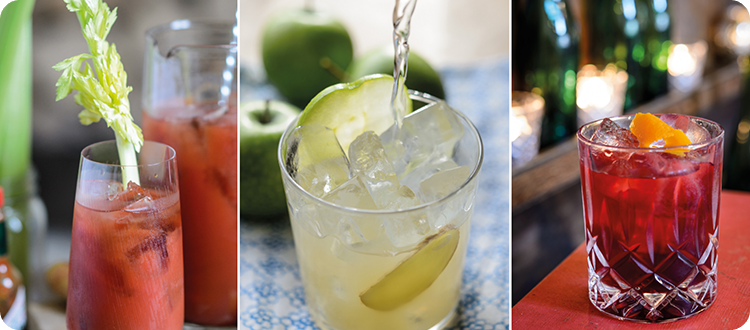
A mocktail can best be described as a cocktail without the liquor, using juices, sodas, infused waters and many other non-alcoholic ingredients to provide flavor. Generally, a mocktail is made fresh at a restaurant’s bar, as opposed to a soda or other drink that is ready as soon as it’s poured from the fountain or container – although exceptions can easily arise. Modern mocktails tend to have a sense of sophistication that’s shared with their alcoholic counterparts and use a variety of ingredients to cover a spectrum of flavors.
Current mocktails go beyond the syrup and sugar of classic recipes to offer a wide range of flavors. These innovative recipes can be the perfect accompaniment for a dinner commonly served with an alcoholic beverage or simply enjoyed by themselves.
Mocktails, an abbreviation for "mock cocktails", are festive, non-alcoholic party drinks. The word "mock" implying a facade of the alcoholic cocktail without any of the alcoholic content. In last few years it has become so popular that it even finds its place in the cocktail menu on many restaurant and bars. Mocktails can be described as a smooth blend of only non-alcoholic drinks, which could be fresh fruit juices, syrups, cream, herbs and spices. Mocktails are designed specifically for those who do not take alcoholic drinks or need to refrain from them, which means these blends can be enjoyed by people of all ages. They are particularly favoured over cocktails by drivers, pregnant women, and others who choose party drinks that are alcohol-free.[5]
However alcoholic drinks cannot be further purified to 0.00% alcohol by volume by distillation. In fact, most drinks labeled non-alcoholic contain 0.5% ABV as it is more profitable than distilling it to 0.05% ABV often found in products sold by companies specializing in non-alcoholic drinks.